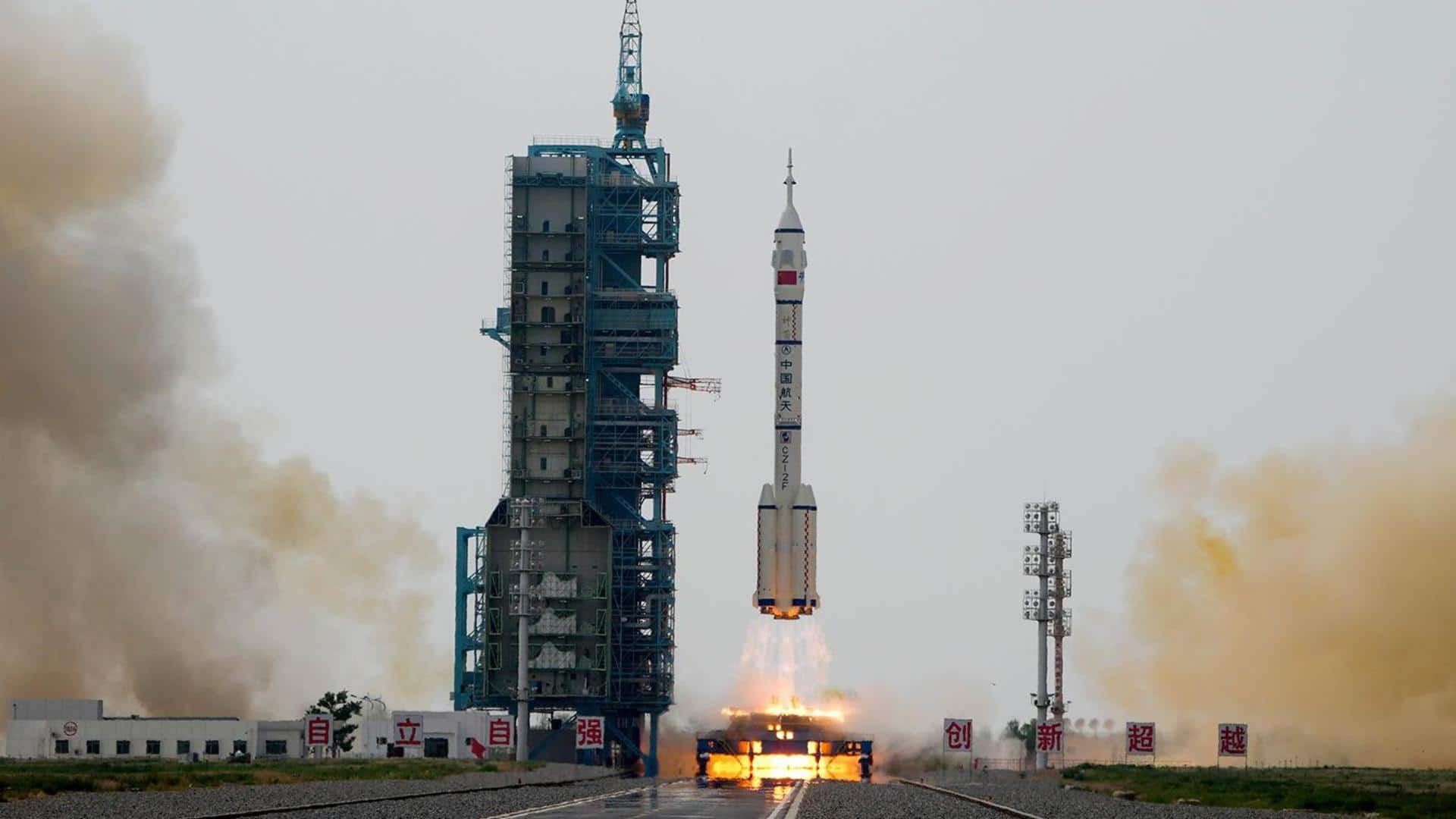
China sends 1st civilian to space on Shenzhou 16 mission
What's the story
In what marks yet another milestone, China has sent its first civilian astronaut to space. The person in question is Gui Haichao, a professor at the Beijing University of Aeronautics and Astronautics. He is part of a crewed mission, the Shenzhou 16, to the Tiangong space station. The launch took place earlier today from Jiuquan Satellite Launch Center in China's Gansu province.
Context
Why does this story matter?
So far, all the Chinese astronauts on space missions have been a part of the country's armed forces. This is the first time China is sending a civilian to space. The Shenzhou 16 mission acts as a testament to China's growing advances in space exploration. The country has ambitious plans for the future, which include testing 3D printing on the Moon.
Crew
There are three astronauts on the Shenzhou 16 mission
The Shenzhou 16 crew is expected to reach the Tiangong space station roughly 6.5 hours after launch. Haichao, the first Chinese civilian to be on a spaceflight is also a payload specialist. He is accompanied by two other astronauts on the current mission. Jing Haipeng is the mission's commander, and the other astronaut is Zhu Yangzhu, an aerospace engineer.
Operation
Haichao will look after operation of science payloads
Shenzhou 16 marks the fourth spaceflight for Haipeng, who was part of China's first team of astronauts in 1998. It is also the first space mission for Yangzhu. During their stay at the space station, Haichao will be tasked with operating and handling the science payloads on the mission while Yangzhu and Haipeng will manage the spacecraft and help carry out technical tests.
Anomaly
Haichao's selection for the mission sparked great interest
While Haichao's selection for the Shenzhou 16 mission garnered deep interest among the public, there were also discussions relating to the official photos where he was seen wearing glasses, an accessory that people heading to space do not usually wear. Numerous media publications raised questions on how an individual without perfect vision could be permitted for a space mission.
Detail
Haichao had to undergo rigorous training
In response, Yang Liwei, a top official in China's manned space program explained that since the division of labor on missions has become more specialized, there were different criteria for different crew members, per China Daily. A number of articles also spoke about the extensive training Haichao had to undergo for the mission including sleep deprivation tests, and underwater drills to gain operational skills.
Mission
The Shenzhou 16 crew will stay in space till November
Shenzhou 16 is China's fifth crewed mission to the recently established Tiangong space station since 2021. The Shenzhou 16 astronauts will take over from Shenzhou 15 crew who has been aboard the space outpost since November 2022. The astronauts will stay aboard the space station till November this year when the next crew rotation, namely the Shenzhou 17 mission, happens.
Tiangong
Tiangong is expected to operate for a decade
Talking about the Tiangong space station, its basic construction was completed only last year. The space outpost is expected to operate for at least a decade. China is planning to open up the space station for hosting experiments from other countries. Tiangong could become the only space outpost for scientific research since the ISS is expected to end operations in 2030.